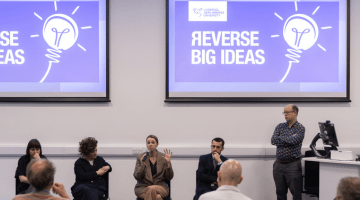Research within LCAPS
Liverpool Centre for Advanced Policing Studies research interests and expertise
LCAPS research agenda is themed around a number of dynamic research clusters which reflect the primary and secondary interests of our staff.
Current research activities are themed around the following research clusters:
- Investigation and Intelligence
- Safeguarding, Vulnerability and Welfare
- The Police Institution, Police Education and Police Culture
- Serious Organised Crime and Terrorism
Our research clusters enable us to engage in the co-creation of knowledge alongside industry stakeholders. We do this by addressing contemporary issues within policing and broader human security domains. In addition to this, our research initiatives and aspirations enable us to play a strong role in the Research Exercise Framework.
Find out more about our research by taking a look at the sections on our projects and expertise below.
Our expertise
LCAPS brings together research-active staff from across the University. Our expertise draws on the following disciplines:
- Policing studies
- Criminal justice
- Criminology
- Law
- Psychology
The Centre also carries out work within the following research areas: serious and organised crime, intelligence analysis, domestic violence, evidence-based policing, human trafficking, counter-terrorism. In bringing together leading researchers from these fields, the Centre produces sector-leading research that addresses the needs of modern policing, law enforcement and security.
Our projects
From crime prevention to skills gaps, the Liverpool Centre for Advanced Policing Studies undertake a number of projects that relate to their research agenda. In addition to the Police Knowledge Fund (see below), academics from LCAPS are undertaking the following projects.





